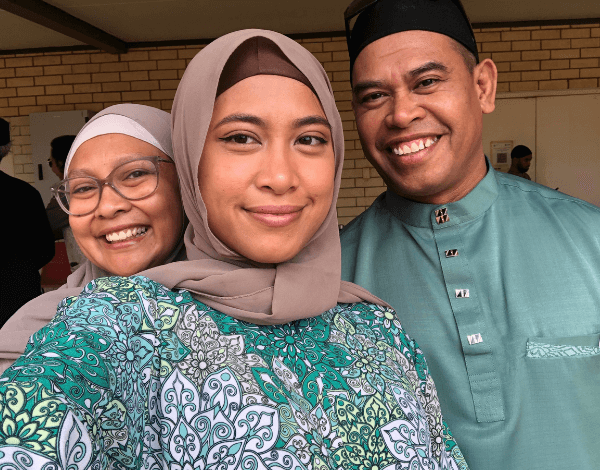So much more than fasting from sunrise to sunset
What Kalyisah has to say about Ramadan
Meet Kalyisah one of our valued nutritionists. Kalyisah is fasting for Ramadan from 22 March to 21 April.
Ramadan is the ninth month of the Islamic calendar. It is considered a holy month in Islam and is recognised as a time for spiritual growth. During Ramadan Muslims fast from sunrise to sunset, but it’s not just food and drink. This includes abstinence from eating and drinking anything including water and trying to break any bad habits or behaviours, like gossiping or rudeness.
The season is about remembering God (or Allah, in Arabic), and strengthening spiritual connection to Him by performing different acts of worship and giving to charity. The aim is to achieve taqwa, which is God-consciousness, while exhibiting shukr (gratitude) and sabr (perseverance – which you need if you are fasting all day).
Suhoor/Sahur and iftar are the two main meals of Ramadan. Each day, fasting starts at the crack of dawn, and ends as soon as the sun dips below the horizon. This means people must wake up really early in the morning to eat a meal, called sahur. At the end of the day, food must be ready to eat on time so they can break fast.

Traditionally, Muslims break fast with water and a date. Dates are great sources of fibre, natural sugar, vitamins, minerals and phytonutrients. They are quite literally jam-packed with nutrients, which is great after a long day of fasting.
From a nutritional perspective, the morning meal is especially important because it’s essential to have enough energy to sustain you for the day. During iftar, it’s important to eat nutritious foods first before indulging in cravings. This means choosing foods that are filling, energising and hydrating. It allows you to get creative to make sure that every day you are getting a variety of different foods in your diet, given there are only two main meals. Everything in moderation, including treats, sometimes.
However, Ramadan is a physical and mental challenge, but Kalyisah said it also reminds her how important it is to have food on the table and water to drink to function every day, “It puts life into perspective because I know there are people out there that experience this struggle every day.”
“It can make you really tired and that I need to take breaks more often and that it takes a few days to build up stamina to get through the long days. Practicing Ramadan is not without its struggle, but it also makes me feel grateful for what I normally have and how I can help others.”
Ramadan is one of Kalyisah’s favourite months of the year because it also brings her family and community closer. They breakfast and share meals together on an occasion called iftar and meet at the mosque for prayers in the evenings. It means that her family slows down their busy lives a little more and sit down altogether at the dinner table to share stories about their faith, their family and life in general.
At the end of Ramadan, there is a religious holiday called Eid al-Fitr, or Holiday of Breaking the Fast. It’s like Christmas to Kalyisah – the time of year she goes home to spend time with her family to celebrate the completion of the month. Eid lasts for a whole month after Ramadan ends. This is a time to decorate homes, eat sweet treats, eat lots of food and visit loved ones. What a way to end a month like this.
 Contact us
Contact us Log in
Log in